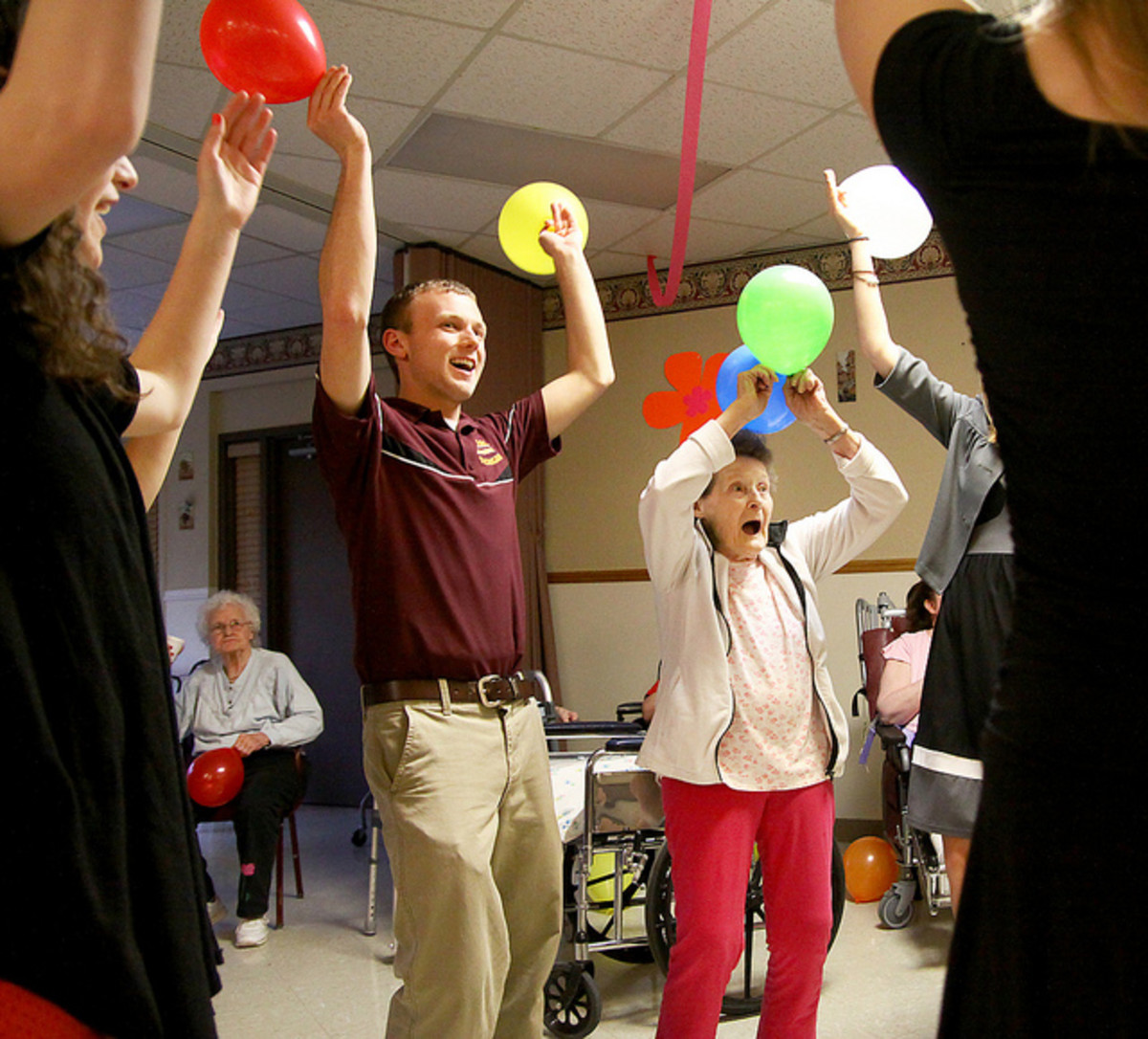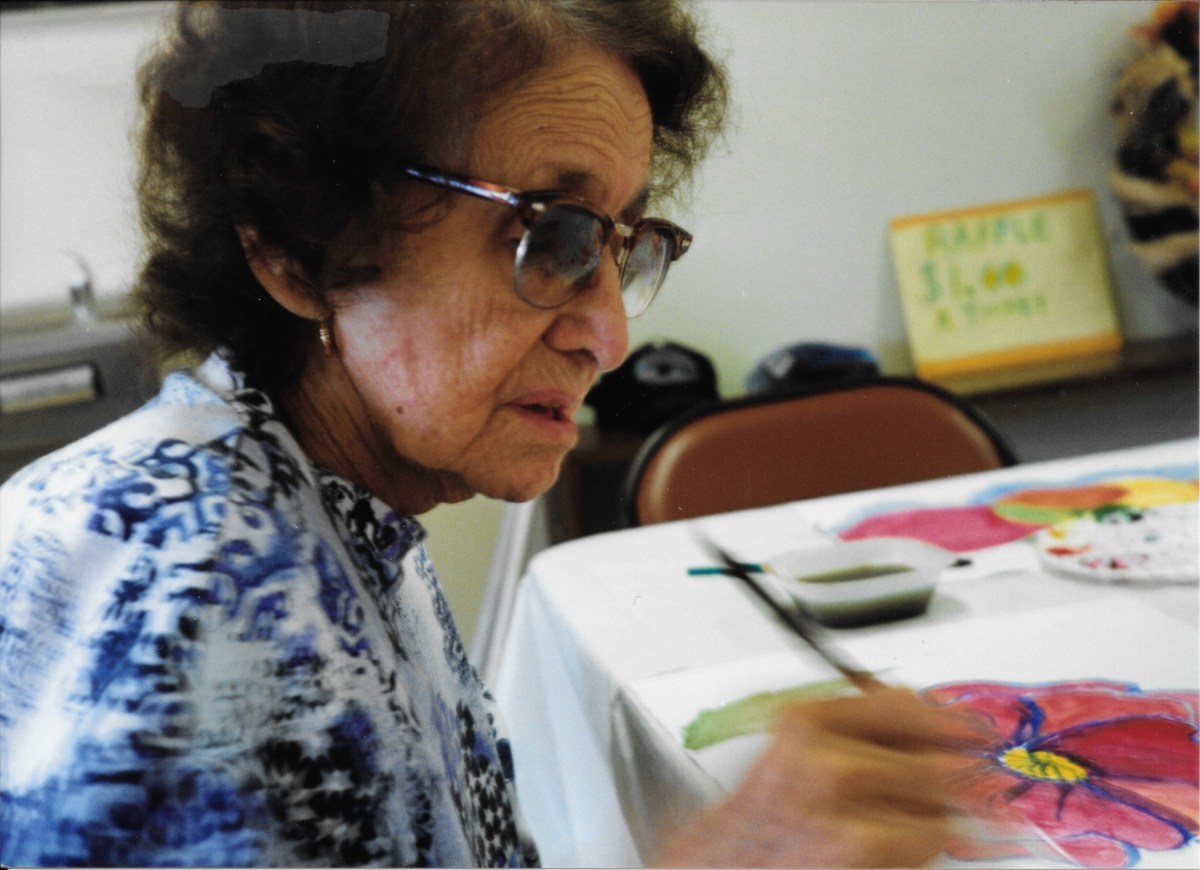Choosing a Nursing Home for an Alzheimer's or Dementia Sufferer
Alzheimer's disease affects approximately 5.4 million Americans today. That means about one in eight older Americans are suffering from a progressive brain disease that slowly takes away their memories, their ability to take care of their own needs, and eventually their lives. Dementia is another progressive brain disease that behaves very similarly to Alzheimer's, and chances of developing at least some level of it increase drastically with age. 5 percent of people between 70 and 80, 20 percent of people between 80 and 90, and 30 percent of people over 90 years old have dementia. With better health care, people are living longer and more and more people are living with these diseases. Because these diseases rob people of the ability to take care of themselves, family members are becoming primary care givers to loved ones with Alzheimer's or dementia.
Being the primary care giver of a loved one with Alzheimer's disease or dementia is extremely difficult. They do the almost impossible job of taking care of their loved ones while watching them slowly drift away, but they do it willingly and lovingly. Some of these family heroes manage to take care of their loved ones until the day that they die without having to look for residential facilities, but, for many others, the day eventually comes when their loved ones need more care than they can offer. Even with wonderful home health providers, often nursing homes become the best choice.
We found ourselves at that point with my grandmother a few years ago. We had successfully kept her in her home for almost three years after her diagnosis with Alzheimer's disease, but after a stay in the hospital left her weak and a visit to a temporary rehabilitation facility was unsuccessful in recovering her strength, her doctor encouraged us to consider a nursing home. We were blessed to find a wonderful one for her, and she eventually began to consider it home.
There are several things to look for in nursing homes in general, but there are a few extra things that become important when dealing with a patient with Alzheimer's disease or dementia.
Word around Town
Before setting up any appointments with residential facilities, ask around. If there is a really bad nursing home in town, people will be talking about it. If there is a really good one then they'll probably be talking about that, too. If you know any CNAs (Certified Nurse's Assistants), ask them. Even if they don't work in a nursing home, they will probably be able to tell you which ones have the highest job turn over. Nursing homes are notorious for high turn over, but if a facility has considerably higher turn over than the others in town, it probably needs to be crossed off the list. High turn over means unhappy, overworked employees. While I'm sure they would not intentionally take their frustration out on residents, Alzheimer and dementia patients do tend to require a considerable amount of time and patience, and they tend to be very sensitive when they feel rushed. Also, Alzheimer and dementia patients need routine, and there is nothing that messes with the routine more than a constant stream of new faces.

The Nose Knows and a Smile is Worth a Thousand Words
When you do set up an appointment, you'll get a tour. This is the time to put your detective skills to the test. Take a sniff around. Literally. Obviously, a nursing home is a place where people go when they can no longer take care of their physical needs, so accidents will happen. You may encounter a smell or two, but if the whole place has that odor then it is possible they aren't diligent enough in changing patients. Some people will be offended and tempted to argue with me on this point and say that all residential facilities smell, and I agree that they won't smell like home. But they should have a clean scent. The nursing home my grandmother lives in does not have a bad odor, so they are out there.
Watch interactions between the staff and the residents. Do they seem to have a camaraderie? Are smiles exchanged or does it seem like things are all business? My grandma's room isn't far from one of the nurse's stations. When she first arrived, she hated it there. We visited often and at unexpected times (I highly recommend that). On one of my visits, I noticed a jacket and a large soda mug sitting beside a chair in her room. A few minutes into the visit, her CNA for the evening came in and claimed the jacket and the mug. She chatted with my grandma for a minute then told her she'd see her after break. When the tech left, my grandma told me that "those girls always left their things in her room because they knew she would take care of them" and she said they thought of her as another mother. Now, this meant a lot to my grandmother. These ladies understood my grandma's need to feel needed and to feel like family. Was it unprofessional to leave their things in her room? I guess, maybe. But a nursing home should feel like a home. It shouldn't be run like corporate America.
What about a Social Life
Ask to see the activities schedule and, if possible, meet the Activities Director. Make sure that there are plenty of things going on and that they encourage residents to be involved. Do they let residents sit in their rooms all day or do they encourage (or even expect) them to leave their rooms and mingle? With Alzheimer and Dementia patients, there is a tendency to avoid interactions and stay to themselves. This isn't good. They need a routine that stimulates them. It keeps the disease from progressing as quickly.
Ask about meal time. Do residents sit in the same places for each meal? Sharing a table with the same people day after day provides consistency. Also, try to visit around meal time. How does the food look? Does it look like it tastes good? It is hard enough to keep the Alzheimer patient eating without unappetizing food aggravating the situation.
Other Things to Consider
Does the facility have an adequately trained staff that is equipped to deal with the special needs associated with brain disorders? Have they won any awards for excellence? How long has it been since an outside force gave them an award? Have they been in trouble? Obviously, if they are open they corrected the problem, but it is still really important to know the details. Are there specific visiting hours or are you welcome any time? What is their policy for keeping you informed? Will they call you with any change or only if something serious happens? How is the security? Do they have an adequate system in place to make sure your loved one doesn't wonder off? And, just as important, is there adequate security to keep out trouble? Finally, do you feel comfortable with the facility and it's people?
No nursing home is going to do things exactly the way you or your loved one would do them. No nursing home is perfect. There will be things that you'd like to change about all of them, but there are good ones out there. Once you choose the one that seems best for your family member's needs, visit often and unannounced. Watch for warning signs and don't be afraid to re-evaluate the facility if it doesn't seem to be living up to your expectations. You can have your loved one moved if the facility isn't the right fit. Alzheimer's disease and dementia steal many things from our loved ones, but it shouldn't steal their right to good care. Look carefully, and you'll find the best nursing home for your loved one. It is out there.








